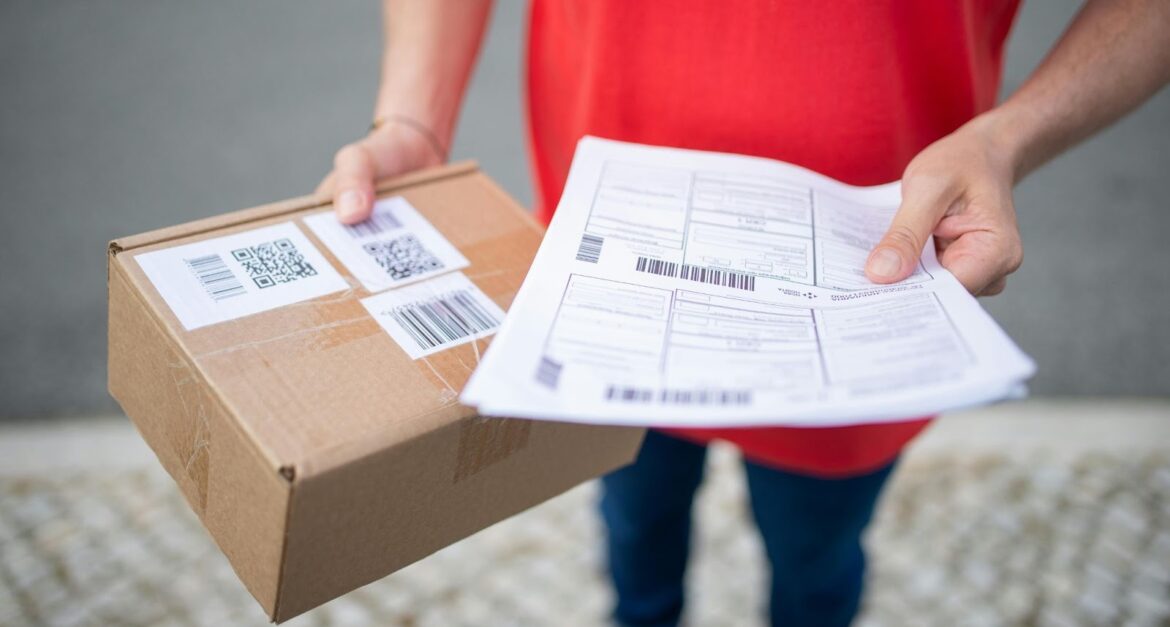
Introduction: The Challenge Every Importer Faces
Are you tired of customs delays or shipment rejections when importing chemicals into Saudi Arabia?
Many importers face frustrating setbacks because their HS codes are mismatched or incomplete, leading to costly fines, SASO rejections, and wasted time at Saudi ports. It’s a common challenge that can turn a profitable trade into a compliance nightmare.Here’s the good news — there’s a simple fix.
By understanding the correct HS codes for chemicals and industrial raw materials and aligning your documentation with SASO and ZATCA requirements, you can make every shipment smooth, compliant, and cost-efficient. With expert guidance from Palm Horizon KSA, importers can confidently manage certifications, labeling, and permits without stress.
An incorrect code can lead to:
- Customs rejection or re-export
- Fines from SASO and ZATCA
- Environmental non-compliance
- Product recall or storage restrictions
But the solution is simple: understanding and applying the correct HS Codes for Chemicals & Industrial Raw Materials — a key to smooth operations, cost efficiency, and compliance confidence.
This guide breaks down everything you need to know: HS code listings, regulatory requirements, documentation, and real-world examples for importers and logistics companies in Saudi Arabia.
What Are HS Codes — and Why They Matter in KSA
HS (Harmonized System) Codes are 6- to 10-digit numbers developed by the World Customs Organization (WCO) to classify products in international trade.
In Saudi Arabia, HS codes help authorities:
- Identify product type and risk category
- Determine customs duties and VAT
- Check SASO or SFDA compliance
- Regulate hazardous and environmentally sensitive materials
Saudi Arabia’s ZATCA (Zakat, Tax and Customs Authority) integrates HS codes into its digital tariff system, aligning with GCC Common Customs Tariff rules.
Core HS Code Categories for Chemicals & Industrial Materials
Saudi Arabia’s chemical industry is broad — from fertilizers and solvents to advanced polymers. Below is a categorized, in-depth list covering all major chemical segments used in KSA’s industrial economy.
1. Fertilizers & Agrochemicals (HS Codes 3101–3105)
Fertilizers are vital to Saudi Arabia’s agricultural sector, supporting food security and sustainable farming under Vision 2030.
| Product Type | HS Code | Description |
| Animal or Vegetable Fertilizers | 3101.00 | Natural fertilizers, untreated |
| Nitrogenous Fertilizers | 3102.10 – 3102.90 | Ammonium nitrate, ammonium sulfate |
| Phosphatic Fertilizers | 3103.10 – 3103.90 | Calcium superphosphates |
| Potassic Fertilizers | 3104.20 – 3104.90 | Potassium chloride, potassium nitrate |
| Compound Fertilizers | 3105.10 – 3105.90 | NPK blends, urea-phosphate compounds |
| Micronutrient Fertilizers | 3105.60 | Zinc, iron, manganese-based fertilizers |
| Organic Fertilizers | 3101.00.10 | Compost, bone meal, guano |
Compliance Tip:
Importers must register fertilizers under Saudi Ministry of Environment, Water and Agriculture (MEWA) for quality and environmental safety approval.
2. Paints, Pigments & Surface Coatings (HS Codes 3206–3215)
Saudi Arabia’s booming construction and infrastructure projects create massive demand for paints, coatings, and pigments.
| Product Type | HS Code | Description |
| Synthetic Polymer-Based Paints | 3208.10 – 3208.90 | Acrylic, vinyl, alkyd coatings |
| Water-Based Paints | 3209.10 – 3209.90 | Latex and emulsion paints |
| Pigments & Coloring Matter | 3206.11 – 3206.49 | Titanium dioxide, iron oxide, zinc chromate |
| Varnishes & Lacquers | 3210.00 | Polyurethane and nitrocellulose varnishes |
| Printing Inks | 3215.11 – 3215.19 | Flexographic and offset inks |
| Paint Driers & Additives | 3810.10 – 3810.90 | Cobalt octoate, manganese-based driers |
Import Requirement:
Paints must comply with SASO Energy Efficiency & VOC (Volatile Organic Compounds) standards, ensuring reduced emissions and safer environments.
3. Plastics, Polymers & Synthetic Resins (HS Codes 3901–3926)
Plastics form the largest segment of chemical imports in KSA due to petrochemical manufacturing and packaging industries.
| Product Type | HS Code | Description |
| Polyethylene (PE) | 3901.10 – 3901.90 | HDPE, LDPE resins |
| Polypropylene (PP) | 3902.10 – 3902.90 | Injection and extrusion grades |
| Polystyrene (PS) | 3903.11 – 3903.90 | GPPS, HIPS, EPS |
| PVC (Polyvinyl Chloride) | 3904.10 – 3904.90 | Rigid and flexible PVC |
| PET & Polyesters | 3907.10 – 3907.99 | PET chips, films |
| Acrylic Polymers | 3906.10 – 3906.90 | PMMA, acrylic resins |
| Epoxy Resins | 3909.10 – 3909.90 | Bisphenol-A based compounds |
| Silicones | 3910.00 | Silicone fluids, sealants |
| Polyurethanes | 3909.50 – 3909.99 | Foam and coating-grade PU |
| Plastic Sheets & Films | 3920.10 – 3921.90 | Laminates, wraps, PVC films |
SASO Note:
Plastics must adhere to SASO Eco Labeling & Degradable Plastics Regulation (SASO 2879:2016), ensuring environmental sustainability.
4. Organic Chemicals (HS Codes 2901–2942)
These are the foundation chemicals used across KSA’s refining, pharmaceutical, and industrial sectors.
| Product Type | HS Code | Description |
| Hydrocarbons | 2901.10 – 2902.90 | Methane, ethane, benzene, toluene |
| Alcohols | 2905.11 – 2905.59 | Methanol, ethanol, propanol |
| Phenols | 2907.11 – 2907.29 | Phenol, cresols |
| Aldehydes & Ketones | 2912.11 – 2914.39 | Formaldehyde, acetone, methyl ethyl ketone |
| Carboxylic Acids | 2915.12 – 2918.90 | Acetic acid, citric acid |
| Esters & Ethers | 2915.21 – 2917.90 | Ethyl acetate, diethyl ether |
| Amines | 2921.11 – 2922.90 | Aniline, urea derivatives |
| Nitrogen Compounds | 2923.10 – 2923.90 | Quaternary ammonium salts |
| Organosulfur Compounds | 2930.10 – 2930.90 | Sulfones, thiols |
Compliance Tip:
Some organic solvents require special import permits due to flammability or environmental toxicity.
5. Inorganic Chemicals, Acids & Industrial Gases (HS Codes 2801–2853)
Essential for industrial, construction, and manufacturing applications.
| Product Type | HS Code | Description |
| Hydrogen, Nitrogen, Oxygen | 2804.10 – 2804.40 | Industrial gas cylinders |
| Sulfur & Carbon | 2802.00 – 2803.00 | Sulfuric acid raw |
| Acids (Inorganic) | 2811.10 – 2811.90 | Hydrochloric, nitric, phosphoric acid |
| Oxides & Peroxides | 2825.10 – 2826.90 | Zinc oxide, manganese dioxide |
| Chlorides & Sulfates | 2833.11 – 2834.29 | Sodium chloride, aluminum sulfate |
| Silicates | 2839.10 – 2839.90 | Sodium and potassium silicate |
| Industrial Gases | 2804.21 – 2804.60 | Argon, helium, carbon dioxide |
6. Chemical Preparations & Solvents (HS Codes 3810–3824)
Used across laboratories, refineries, and cleaning industries.
| Product Type | HS Code | Description |
| Anti-Knock Preparations | 3811.11 – 3811.90 | Fuel additives |
| Solvents | 3814.00 | Industrial degreasers, alcohol mixtures |
| Chemical Reagents | 3822.00 – 3822.90 | Laboratory and diagnostic reagents |
| Cleaning Compounds | 3402.11 – 3402.90 | Industrial detergents |
| Fire Retardants | 3824.30 – 3824.99 | Chemical additives for safety |
Note:
Solvent imports must comply with SASO flammability labeling and Hazardous Material Storage standards.
Graph: Import Share by Category (Saudi Arabia 2025)
| Category | Import Share (%) | Growth Trend | Industry Impact |
| Plastics & Polymers | 36% | ▲ Rising | Packaging, construction |
| Fertilizers | 24% | ► Stable | Agriculture expansion |
| Paints & Pigments | 15% | ▲ Moderate | Infrastructure & housing |
| Organic Chemicals | 10% | ▲ Moderate | Pharma, cosmetics |
| Industrial Solvents | 9% | ▼ Declining | Due to green policies |
| Adhesives & Resins | 6% | ▲ Growing | Manufacturing, automotive |
Saudi Arabia’s Regulatory Framework for Chemical Imports
Importing chemicals is not just about codes — it’s about safety, compliance, and traceability.
Key Authorities:
- ZATCA (Customs Authority): HS classification and duty rates
- SASO (Saudi Standards, Metrology & Quality Org): Product safety and conformity
- MEWA: Fertilizer and agrochemical permits
- SFDA: For pharmaceutical and biotech chemicals
Mandatory Documents:
- Commercial Invoice & Packing List
- Certificate of Origin
- Bill of Lading / Airway Bill
- SASO/SABER Certificate of Conformity
- Safety Data Sheet (SDS)
- Arabic labeling and hazard pictograms
Implementation Overview: Step-by-Step Compliance Flow
- Classify Product under Correct HS Code via ZATCA portal.
- Register on SABER Platform for SASO approval.
- Obtain Import Permits (MEWA/SFDA for hazardous items).
- Attach SDS and GHS-compliant Labels.
- Coordinate with a Licensed Logistics Partner such as Palm Horizon KSA for customs clearance and documentation.
Practical Case Study: Avoiding HS Code Penalties
A Riyadh-based importer of industrial solvents misclassified a shipment under 3814.00 instead of 3811.21, resulting in SAR 45,000 fines and two-week delay.
After partnering with Palm Horizon, they realigned classification with SASO data, enabling faster clearance and preventing future penalties.
Comparison: KSA vs. Global Chemical Classification
| Criteria | KSA | EU | USA |
| Main Authority | SASO + ZATCA | REACH, ECHA | EPA, CBP |
| Labeling Requirement | Arabic + English | EU GHS | OSHA GHS |
| Digital Certification | SABER | REACH Portal | TSCA e-file |
| Environmental Restrictions | Strong (Vision 2030) | Moderate | High for emissions |
| Penalty Severity | Very High | Moderate | Variable |
Industries That Depend on These HS Codes
- Petrochemical Refineries – feedstock imports
- Agriculture Sector – fertilizers, soil enhancers
- Paint & Construction – pigments, sealants
- Pharmaceuticals – reagents, alcohols
- Packaging Manufacturers – plastic resins
- Energy & Mining – chemical solvents and additives
FAQs: HS Codes & Chemical Imports in Saudi Arabia
1. What happens if my HS code is incorrect?
You may face customs delays, fines, or re-export orders under SASO and ZATCA rules. Accurate HS codes ensure faster clearance and prevent costly penalties.
2. Do all chemicals require SASO certification?
Yes, most industrial and hazardous chemicals must be registered on SABER for SASO conformity before import.
3. How can I check my product’s HS code?
Use the ZATCA Customs Tariff Portal or consult a certified logistics expert like Palm Horizon KSA for accurate classification.
4. Are bilingual labels mandatory?
Yes, Arabic and English labels are required with GHS symbols, product names, and safety instructions on all chemical packaging.
5. Can Palm Horizon assist with import documentation?
Absolutely — Palm Horizon KSA provides full logistics, customs clearance, and SASO/SABER compliance support for chemical imports.
Conclusion: Accuracy, Compliance, and Confidence
The chemical trade sector in Saudi Arabia is thriving — from fertilizers and paints to polymers and solvents. But success hinges on one critical factor: accurate HS code classification and full compliance with SASO and environmental standards.
Partnering with Palm Horizon, the best logistics company in KSA, helps importers simplify customs clearance, minimize risks, and maintain operational confidence across borders.
With expertise in chemical logistics, warehousing, and documentation, Palm Horizon ensures every shipment arrives safe, compliant, and on time.





